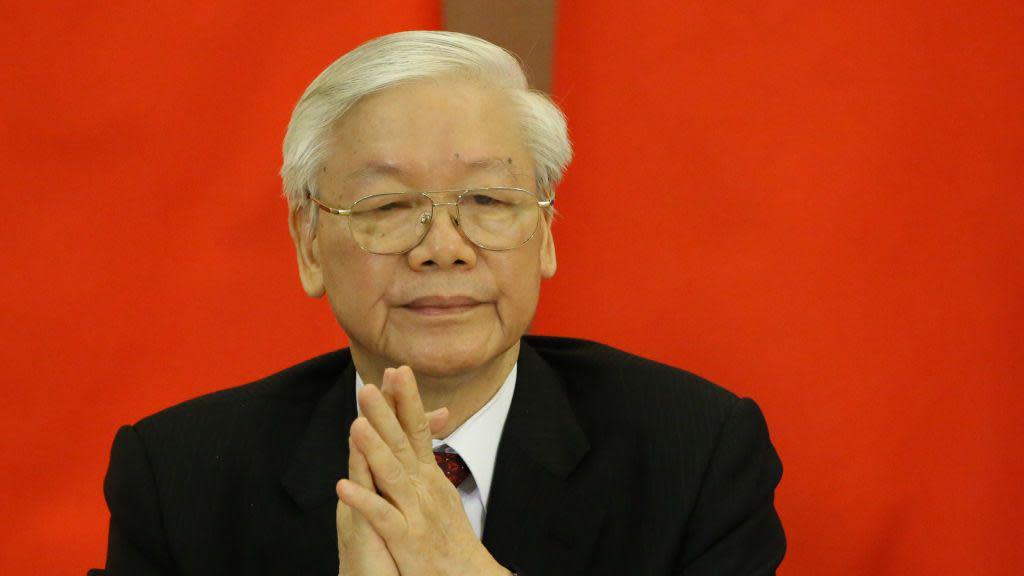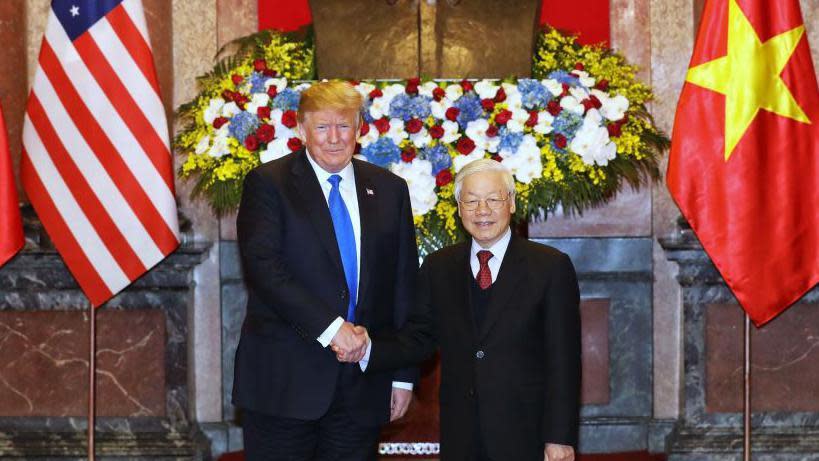Vietnamese leader Nguyen Phu Trong dies at 80

Vietnam’s long-serving leader Nguyen Phu Trong has died "after a period of illness", marking the end of a political era.
The announcement came days after the government said he was stepping back to focus on his health and had handed duties to President To Lam.
As the general secretary of Vietnam’s ruling Communist Party since 2011, and at one point also double-hatting as president, Mr Trong was seen as one of the country’s most powerful leaders in decades.
Besides overseeing the supercharged growth of Vietnam’s economy, the 80-year-old was known for his “blazing furnaces” anti-corruption campaign.
Mr Trong’s death comes at a time of political turbulence for Vietnam’s Communist leadership. In recent months three top leaders quit following unspecified accusations of wrongdoing.
According to an official statement released on Friday, Mr Trong died "due to old age and serious illness".
It comes a day after the Vietnamese government said in a surprise announcement that Mr Trong needed time to “focus on active treatment” for an unspecified medical condition. It added that the president would take over Mr Trong’s duties in running the party’s central committee, politburo and secretariat.
On that same day, the government also awarded Mr Trong the Gold Star, the highest honour given in Vietnam, for contributions to the party and country.
Mr Trong was seen as recently as late June, when he welcomed Russian President Vladimir Putin on a state visit.
But after that he failed to attend several events, including the official launch of a book compiling some of his speeches.
In recent years, there were several instances where he would disappear from the public eye for long stretches of time. In 2019, he was reported to have had a stroke.
Little would be said about these absences by the state, though Mr Trong occasionally acknowledged he had health and ageing issues. Observers say the state’s discretion over the health of party leaders and government officials is one way of portraying Vietnam as a stable nation under single-party rule.
In 2018, the country passed a law classifying top officials’ health as a state secret, prompting the already tightly-controlled local media to be even more cautious. Intense speculation over his health has long thrived on social media.
Observers say he leaves behind a deep but incomplete legacy. After rising to power in 2011 he stayed on as general secretary for a rare three terms. During this period he also acted as president from 2018 to 2021.
He saw the need to open up Vietnam’s economy - under his watch, the country’s GDP per capita more than doubled and Vietnam inked a series of free trade agreements with the West and Asian neighbours. Mr Trong was seen as more keen to engage the world than his predecessors, building relationships with US leaders as well as Mr Putin and Chinese President Xi Jinping.

At the same time, he fervently clung on to his socialist ideals. “He was a career lifelong ideologue… he was a true believer, and I think that's why in some ways relations between Vietnam and China have grown so close,” said Zachary M Abuza, a professor and Southeast Asia expert with the National War College in Washington DC.
“He always believed in making the party clean and relevant so that the party could live with the country for another 1,000 years - that’s his quote. So he saw the fate of the Vietnamese Communist party and the nation as bound together,” said Giang Nguyen, a visiting senior fellow with the ISEAS-Yusof Ishak Institute in Singapore and former BBC Vietnamese editor.
Mr Trong launched his “blazing furnaces” campaign to root out corruption that deepened in tandem with Vietnam’s growth. Close to 200,000 officials are estimated to have been criminally charged or to have faced disciplinary action since then.
But there are few signs it has truly succeeded in stamping out the problem. The country still performs dismally in international corruption rankings. In recent months Vietnam has been rocked by one of its biggest fraud scandals ever, involving a staggering $44bn (£34bn) filched from banks.
The anti-corruption drive has been seen as sparking a critical shortage in the public service sector. It’s also been seen as contributing to instability within the Communist Party, where so many top officials have been purged - due to corruption or infighting - that very few are left as possible successors, particularly in the paramount political leadership team, the Politburo. Only two currently meet the conditions to inherit his post: Mr Lam and Prime Minister Pham Minh Chinh.
“The talent pool hasn’t been prepared by Mr Trong. It shows he couldn’t control the forces within the party anymore,” said Mr Nguyen.
Dr Abuza pointed out that the anti-corruption drive in many ways “served to delegitimise the party in ways that [Trong] didn't expect, because it exposed just how sweeping corruption is at the highest level of the party”.
During his rule Vietnam also continued to tighten its control on human rights and freedom of speech. It has jailed or deported scores of dissidents, activists and bloggers, and passed draconian laws limiting the press and internet.
His death, and the question of succession that it poses, puts Vietnam in uncharted waters. For many Vietnamese, “we share the feeling of anxiety of the unknown”, said Mr Nguyen.
“It is the end of an era. That version of communism or socialism, the old times, it’s now gone. What’s next is going to be very difficult to foresee. The system is still there, but without that veneer of ideology and ideals.”
Additional reporting by BBC Vietnamese.

